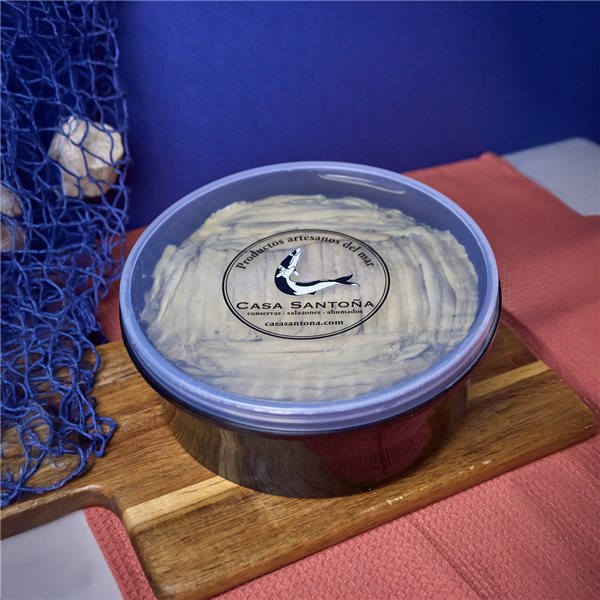My baskets
You still don't have anything in your shopping cart
My baskets
You still don't have anything in your shopping cart

{{getOldPrice()}}{{getPrice()}}
 ¡ Buying this product you get {{calculatedProductMenttos()}} menttos !
¡ Buying this product you get {{calculatedProductMenttos()}} menttos !


Casa Santoña offers authentic Cantabrian anchovies and other artisanal sea products.
With over three decades of experience, they are leaders in salting, smoking, and preserving sea products.
Their catalog includes sardines, tuna, razor clams, tuna belly, anchovies in vinegar, and smoked salmon.
Additionally, they have restaurants where they perfect recipes to offer the best selection to their customers.
At Casa Santoña, we continue to bet on the excellence of the Cantabrian Sea. We present our Anchovies 00, a special selection of extra-large pieces, carefully crafted for the most demanding palates.
Captured in the cold waters of the Cantabrian Sea and prepared artisanally, these anchovies stand out for their superior size, firm texture, and a delicate and balanced flavor. Each piece is cleaned by hand, marinated with care, and preserved in the highest quality olive oil, which further enhances its natural flavor.
Perfect for enjoying on their own, as a gourmet tapa, or accompanied with pickles and crispy bread.
At Casa Santoña, we continue to bet on the excellence of the Cantabrian Sea. We present our Anchovies 00, a special selection of extra-large pieces, carefully crafted for the most demanding palates.
Captured in the cold waters of the Cantabrian Sea and prepared artisanally, these anchovies stand out for their superior size, firm texture, and a delicate and balanced flavor. Each piece is cleaned by hand, marinated with care, and preserved in the highest quality olive oil, which further enhances its natural flavor.
Perfect for enjoying on their own, as a gourmet tapa, or accompanied with pickles and crispy bread.
